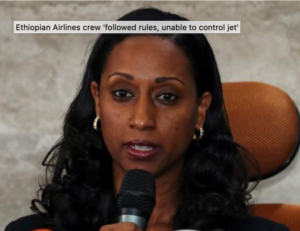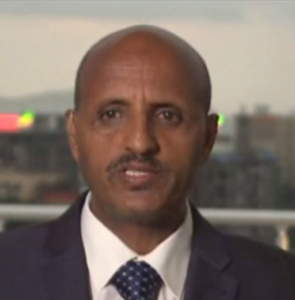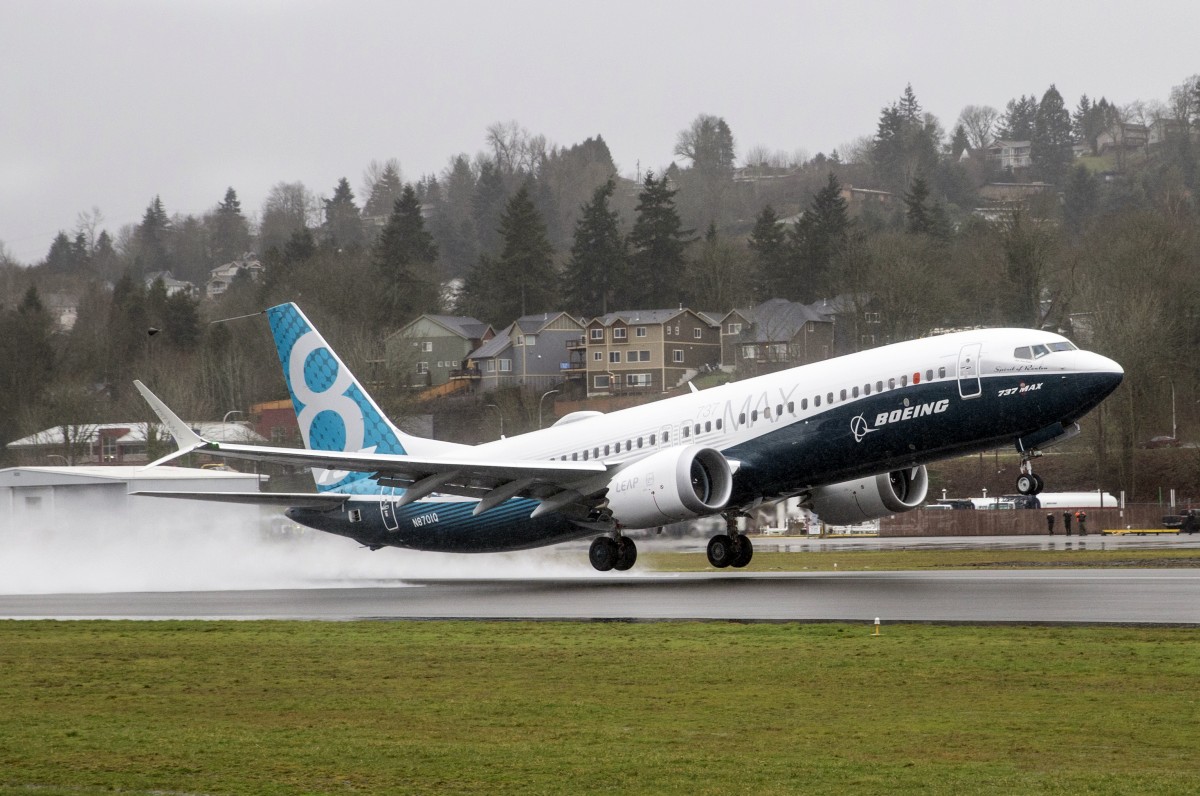According to the preliminary report released by the investigators looking at the Ethiopian Flight 302 crash, the crew of that aircraft experienced “repetitive uncommanded aircraft nose-down conditions” before it crashed.
Dagmawit Moges, Ethiopian Transport Mini ster, described a similar situation to the Lion Air accident in October, also a Boeing 737 Max 8. Moges spoke in a news conference just prior to the release of the preliminary report on the crash.
ster, described a similar situation to the Lion Air accident in October, also a Boeing 737 Max 8. Moges spoke in a news conference just prior to the release of the preliminary report on the crash.
Moges said accident investigators are recommending Boeing review the “the aircraft flight control system related to the flight controllability,” and that regulators ensure fixes are “adequately addressed” before returning the 737 MAX fleet to service.
Problems with the automated system known as maneuvering characteristics augmentation system (MCAS) were reported in the Lion Air crash in October.
Ethiopian Airlines released this statement:
The preliminary report clearly showed that the Ethiopian Airlines Pilots who were commanding Flight ET302/10 March have followed Boeing’s recommended and FAA’s approved emergency procedures to handle the most difficult emergency situation created on the airplane. Despite their hard work and full compliance with the emergency procedures, it was very unfortunate that they could not recover the airplane from the persistence of nose diving. As the investigation continues with more detailed analysis, as usual we will continue with our full cooperation with the investigation team.
Group CEO, Tewolde GebreMariam said, “All of us at Ethiopian Airlines are still going through deep mourning for the loss of our loved ones and we would like to express our deep sympathy and condolences for the families, relatives and friends of the victims. Meanwhile, we are very p roud of our pilots’ compliances to follow the emergency procedures and high level of professional performances in such extremely difficult situations. We are also very proud of our Global standard Pilot Training Center and the Ethiopian Aviation Academy which is one of the largest and most modern in the world equipped with state of the art and latest training technologies. I would also like to take this opportunity to thank our valued customers, the travelling public, the media and global aviation professionals for the remarkably high level of vote of confidences and strong support that you have been giving us starting from the day of this tragic accident. We will double our efforts every single day to win your confidence and earn your business. Your safety will remain our top most priority and we will continue to work together with our partners around the world to make air travel safer and more comfortable. My highest appreciation also goes to my 16,000 colleagues at Ethiopian Airlines for their resilience, high standards of professionalism and their continued commitment for operational excellence and their award-winning customer services which enabled us to continue our business without any operational disruption, flight delays nor flight cancellations.”
roud of our pilots’ compliances to follow the emergency procedures and high level of professional performances in such extremely difficult situations. We are also very proud of our Global standard Pilot Training Center and the Ethiopian Aviation Academy which is one of the largest and most modern in the world equipped with state of the art and latest training technologies. I would also like to take this opportunity to thank our valued customers, the travelling public, the media and global aviation professionals for the remarkably high level of vote of confidences and strong support that you have been giving us starting from the day of this tragic accident. We will double our efforts every single day to win your confidence and earn your business. Your safety will remain our top most priority and we will continue to work together with our partners around the world to make air travel safer and more comfortable. My highest appreciation also goes to my 16,000 colleagues at Ethiopian Airlines for their resilience, high standards of professionalism and their continued commitment for operational excellence and their award-winning customer services which enabled us to continue our business without any operational disruption, flight delays nor flight cancellations.”
Boeing released this statement:
“I’d like to reiterate our deepest sympathies are with the families and loved ones of those who lost their lives  in the accident,” Boeing Commercial Airplanes President and CEO Kevin McAllister said. “We thank Ethiopia’s Accident Investigation Bureau for its hard work and continuing efforts. Understanding the circumstances that contributed to this accident is critical to ensuring safe flight.”
in the accident,” Boeing Commercial Airplanes President and CEO Kevin McAllister said. “We thank Ethiopia’s Accident Investigation Bureau for its hard work and continuing efforts. Understanding the circumstances that contributed to this accident is critical to ensuring safe flight.”
The preliminary report contains flight data recorder information indicating the airplane had an erroneous angle of attack sensor input that activated the Maneuvering Characteristics Augmentation System (MCAS) function during the flight, as it had during the Lion Air 610 flight.
To ensure unintended MCAS activation will not occur again, Boeing has developed and is planning to release a software update to MCAS and an associated comprehensive pilot training and supplementary education program for the 737 MAX.
As previously announced, the update adds additional layers of protection and will prevent erroneous data from causing MCAS activation. Flight crews will always have the ability to override MCAS and manually control the airplane.
Boeing continues to work with the U.S. Federal Aviation Administration and other regulatory agencies worldwide on the development and certification of the software update and training program.
Boeing also is continuing to work closely with the U.S. National Transportation Safety Board (NTSB) as technical advisors in support of the AIB investigation. As a party providing technical assistance under the direction of investigating authorities, Boeing is prevented by international protocol and NTSB regulations from disclosing any information relating to the investigation. In accordance with international protocol, information about the investigation is provided only by investigating authorities in charge.
FAA released this statement:
The investigation by Ethiopian authorities remains ongoing, with the participation of the FAA and the NTSB. We continue to work toward a full understanding of all aspects of this accident. As we learn more about the accident and findings become available, we will take appropriate action.
You can see the full preliminary report on CNN’s website here.
